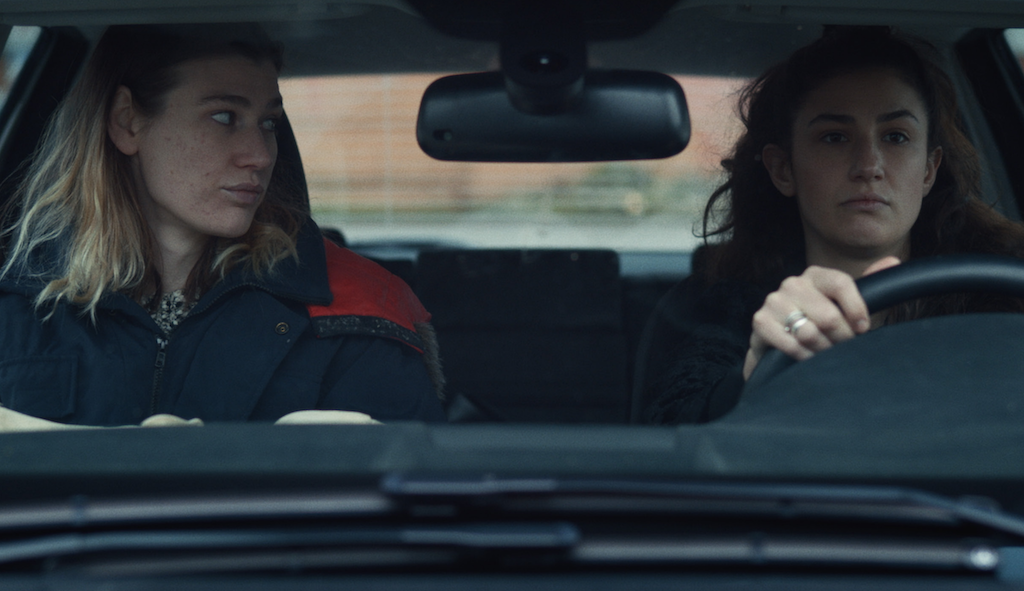
The Virtual Maryland Film Festival runs from June 12-21. Read all about the fest here and access the films and check out the complete lineup on the MdFF website.
A Thousand Cuts
4 stars
A Thousand Cuts tells the story of an intrepid journalist going up against a populist, misogynist, law-and-order touting politician who boasts about his penis size and disparages the “Fake News” as out to get him. The politician’s name is Rodrigo Duterte and he is the president of the Philippines.
Watching Baltimorean Ramona S. Diaz’s terrific documentary is a bit like looking at America through a funhouse mirror. The similarities between Duterte—and the movement he inspires—and Trump are uncanny. But Duterte is like Trump Unplugged. While Trump tweets “Law and Order!” and calls on the National Guard to pepper spray innocent protesters, Duterte murders drug users (not dealers), no questions asked—and brags about it. (It’s his way of cleaning up the streets.) While Trump rails against fake news and can be rude and bullying to journalists, Duterte has journalists arrested and casually threatens their lives.
It’s into this environment that we get to know the absolute dynamo that is Maria Ressa, the editor of the Filipino newspaper Rappler, the only publication that speaks truth to power in the country. Ressa has been celebrated as a human rights leader across the globe. She was included in Time magazine’s Person of the Year issue in 2018. She is feted by the likes of George and Amal Clooney. She is the constant recipient of humanitarian and journalism awards. At home, however, she and her staff—many young women—are threatened, subject to arrest (Renna is arrested twice over the course of the film), and exposed to despicable online abuse.
Renna herself is a wonderful heroine: Compact and slightly androgynous, with rimless glasses and a no-fuss haircut, she exudes intelligence, charisma, and pluck. She’s so small she seems vulnerable—but her self-possession and clarity of purpose makes her formidable. She says she doesn’t scare easy. What Diaz makes clear is that Renna is scared—but that the work means more to her than her own safety.
A Thousand Cuts—the title is a reference to how Duterte is chipping away at Filipino democracy—is a must see for those who care about freedom of the press, democracy, and the future of one particular country—our own.

Mayor
4 stars
Like so many of the best documentaries, David Osit’s Mayor feels like a work of fiction.
Its central character, Musa Hadid, is a kind-hearted, put-upon bureaucrat, an everyman thrust into absurdist and sometimes dangerous circumstances.
As the mayor of Ramallah, the seat of Palestine’s government, he has many of the usual bureaucratic duties to worry about: Should the city have a brand identity other than We Ramallah? (And should there even be a space between “We” and “Ramallah”?) Should the fountain in town square have an aspirational name like “The Fountain of Life”? And should he hide in his office in City Hall as Israeli soldiers raid his city?
You see, being the Mayor of an occupied municipality brings with it all sorts of challenges and dangers. More than anything, Hadid wants to serve his citizens, provide them with clean water, and pretty scenery, and quality schools. But as he grapples with those things, he must also grapple with the Israeli soldiers, whom he can see from his rooftop, and who make their presence known from time to time, in occasionally threatening fashion.
“I feel jealous of other cities,” he says at one point. “There’s so much that they can do that we can’t.”
Hadid is a wonderfully expressive man—he sighs, wipes his brow, rests his head in his hands, when dealing with problems both quotidian and dire. (When he’s reacting to inept coworkers and bureaucrats, his lack of poker face become particularly comedic.) And we also see Ramallah as a city caught between two identities: On the one hand, French cafes and American chain restaurants like Popeye’s and KFC line the streets (although the Star & Bucks coffee shop is a hilarious knockoff). On the other hand, a lack of autonomy (Ramallah doesn’t even control its own sewage system) and the prospect of real danger looms at every turn.
Beautifully shot, both comedic and tragic, Mayor is a film that offers an intimate look at life in Palestine and at one good man trying his hardest to serve his people.

Raf
3 stars
The unsettling Raf, which has the rhythms and creeping dread of an early Yorgos Lanthimos film, also has shades of The Talented Mr. Ripley, but in reverse.
In this case, it’s a rich young woman, Tal (Jesse Stanley), who aggressively inserts herself into the life of a working class 29-year-old named Raf (Grace Glowicki). The unassuming Raf works odd handyman and janitorial jobs to make ends meet, and has a passionless relationship with her boyfriend Roger (the film’s writer/director Harry Cepka).
Tal seems fascinated by everything about Raf—the offbeat impressions she does (including Charles Manson), the “dance like no one is watching” moves she makes when grooving to her beloved techo music, her bucket hats, and her self-portraits posing with Samurai knives. But does she respect and care about Raf or just see her as some sort of amusing pet project? Tal, we see already, is a provocateur, a careless escalator of conflict (at one point, she confronts a man who cat-called her with such in your face aggression, it’s a miracle no one is seriously hurt). Regardless, Raf is completely under Tal’s spell and the dynamic between them becomes disturbing. In some ways, Tal could be seen as a send up of certain type of off-putting theater type (she is a Shakespearean actress). Everything she does seems performative, as though she’s always being observed by an imaginary audience. She doesn’t just have conversations, she interrogates people, wearing her judgment on her sleeve. And she views everyone else as characters in a drama that she’s starring in.
Things shift when Tal brings Raf to her summer house on the lake. There, Tal’s equally extra brother (Victor Dolhai) shows up and they both seem to view Raf as a plaything. The film grows increasingly menacing, like a horror film waiting for the horror to kick in. Does it ever arrive? Well, you’ll have to watch to find out.

Dark City Beneath the Beat
3 stars
I’m thrilled that Baltimoreans are finally going to get to see rapper/music impresario TT the Artist’s film, a love letter to club music, the healing power of dance, and, above all, the city of Baltimore. But I confess I’m sad that it won’t be screened in a packed theater (for now). Oh, the party we would’ve had.
Still, this kinetic, kaleidoscopic film, one that manages to acknowledge Baltimore’s deep-rooted struggles while celebrating its spirit and beauty, is well worth seeing on video. The film, which is barely over an hour, is hard to describe. It’s part music video, part documentary, party hip-hop-inflected Busby Berkeley musical, part tone poem. If you’re looking for a linear history of club music you won’t find it here. Instead, you meet some of its main players (a few, like Mighty Mark and TT herself are identified; several, somewhat frustratingly, aren’t). You learn the colorful names of some of the dance moves (like the Sponge Bob, Crazy Leg, Sexy Walk, and Cherry Hill) and watch some beautiful spoken word rap and dancing.
Occasionally the film, which combines soaring drone footage with on-the-ground camerawork, pauses for an elaborate musical number. In one case, as orange jumpsuit-clad dancers surround the puckish emcee DDm, we see them in aerial view, creating stunning patterns against the Inner Harbor. In another, an all-too-resonant tragic-comic dance number features a white cop at Lexington Market, first finding the club music irresistible, then shooting dead (with a finger gun, in this case) the black man who performs it. We get brief glimpses at the King and Queen of Baltimore dance competitions, we hear about gone-too-soon club dance legends like K. Swift and Tamika “Fatgirl” Raye, and we hear straight talk about Baltimore’s violence and addiction.
The dancing—filled with kicks and scissors and stepping so fast it sometimes looks like the film has been sped up—is electrifying. There is something a little bittersweet about the film—namely, that TT left Baltimore for LA to start her own, all-female record label, Club Queen records. No doubt she still has mad love for her adopted city. But her absence will be felt.
TT the Artist will participate in a live Q&A after the film first drops on June 12 at 8:30 p.m.
